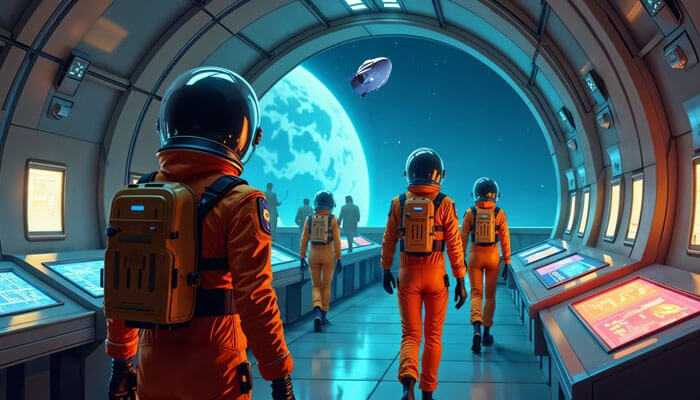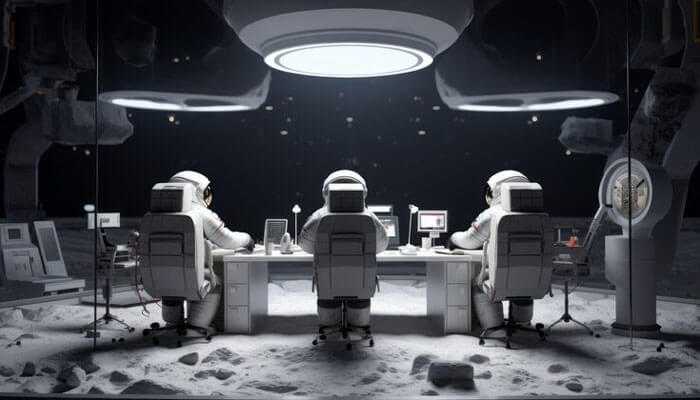Entertainment options today are limitless for anyone looking to have fun. If you love gaming, you can visit NV.Casino anytime to play as many top-tier games as you would love. These include slots, table games, card games, and so much more. It is fascinating to learn that space tourism is also among the options people have when looking for some good times. It is an opportunity to reach new heights when you want to visit somewhere other than Earth.
It is quite exciting to see that venturing into space was once limited to scientists and astronauts. As a private citizen, you can now successfully plan vacations beyond the atmosphere of the Earth. Companies like SpaceX and others promise these experiences to those who can afford them. These luxury adventures that are bound to open up a new kind of travel have various implications for science and the future of explorations. Check out what some of these implications may be.
Advancing Infrastructure for Space Tourism
One promising aspect of space tourism is how it can speed up the development of infrastructure needed for future expeditions. As more people travel beyond Earth, better equipment, technology, and safety protocols may be needed to ensure others travel without complications. Thankfully, companies like Virgin Galactic are already working on innovations to reduce the risks and costs associated with traveling beyond Earth.
Professionals say they would love to see this become as routine as air travel. These advancements will make it possible to imagine a future where orbiting extraterrestrial hotels, lunar bases, and Martian colonies are accessible not only to astronauts but also to other interested people.
Research Progression
For adventure seekers, getting a chance to explore orbits is more than a dream come true. It is also a potent tool for advancing scientific research. Traveling out of Earth will present opportunities for conducting various experiments, including microgravity. This is an environment that is usually difficult to replicate on Earth. This type of access allows experts to study fundamental physical and biological processes that lead to breakthroughs in fields such as:
- Material Science;
- Medicine;
- Physics
For example, medical researchers can invest in these missions to look into how bone density is reduced in low-gravity environments. It can help to develop cures or treatments for some bone conditions. Tourists exploring galaxies can also act as additional test subjects for research. They can assist scientists who want to better understand how humans cope with extended astronaut experiences. Furthermore, the knowledge and technology gained from these missions can contribute to better aerospace exploration, making it more efficient and feasible.
Deep Space Research
Another exciting prospect of space tourism is that it opens up the external world as training grounds for future deep research out of the Earth. As more humans travel to orbit, the more chances data scientists will have to gather long-term impacts of celestial living on human minds and bodies.
The missions can also help researchers better understand how to support astronauts on more extended missions, such as when they travel to Mars. It also fosters technological innovation faster than traditional government programs alone. Firms like SpaceX have pioneered reusable rockets, drastically reducing each launch’s cost. This implies that the missions benefit tourists and make other missions to Mars, Jupiter, or the Moon more practical by improving reliability and cutting expenses.
Pushing Environmental Boundaries
The idea of space tourism has also brought about serious discussions around environmental impact and sustainability. Remember that much fuel must be used each time a rocket is launched. The process also emits greenhouse gasses that contribute to environmental degradation and pollution.
However, with increased demand, there is also the push for more sustainable technologies to care for the environment. It means that companies facilitating these missions must look into ways to explore the use of renewable fuels and reduce emissions. This is supposed to have a positive impact not only on interstellar tourism but also on other Earth-bound applications.
There are talks of companies considering space resource utilization. This could be seen in mining asteroids or gathering resources in the orbits rather than getting them from Mother Earth. If possible, the approach could help lessen the launches’ environmental impact, representing a significant shift in how people obtain resources.
Embracing New Frontiers of Space Tourism
Space travel is a thrilling concept that has evolved from just a thought to reality, unlocking new opportunities for global awareness, exploration, and science. The field has great potential to shape the future in terms of physical exploration of the cosmos and advancing science on Earth and beyond. Soon, cosmic tourism may be as common as a plane ride.




